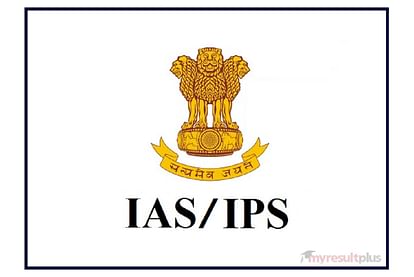
There is perpetual debate over who has more authority, an IAS or an IPS. We will attempt to dispel myths about the IAS and IPS' authority in this section. Both the Indian Administrative Services (IAS) and the Indian Police Services (IPS) are highly regarded in their own right, and the Civil Services Exam is a common entry point for both. The similarities end there, as both of these administrative cogs in the government machinery perform distinct roles and functions.
The Union Public Service Commission (UPSC) administers India's most popular yet competitive recruitment drive, the civil services examination (CSE). The Indian Administration Services (IAS) and the Indian Police Services are the most popular of the 24 civil services (IPS). Each year, lakhs of aspirants take the CSE in the hope of being accepted into one of these services.
Candidates interested in administration should prioritise IAS on their detailed application form (DAF), while those interested in law and order at the grassroots level should prioritise IPS. IPS officers uphold society's peace, whereas IAS officers carry out the government's policies and are a part of the bureaucracy. Both positions are highly regarded in their respective fields. However, there is a distinction between powers and responsibilities.
● Both the IAS and IPS are very powerful posts.
● IPS officers are responsible for their respective department (Police Department of the state), while an IAS officer is responsible for all the departments of the said district.
● An IAS officer is the head of the police department and as per protocol rules, whenever an IPS officer is in uniform, he/she has to salute the IAS officer. If he/she is without a cap then salute is not mandatory.
● In many cities, IPS officers have more rights, but it is still less than an IAS officer.
● The area of work for an IPS officer can only be limited to the police and traffic department, while departments such as health, school, revenue, pension, RTO etc are all part of the IAS officers portfolio.
● In terms of power, IAS is much more powerful than IPS.
Role of an IAS
An IAS officer has all the powers in the field of administration, right from looking for events related to Prime Minister, President visits, to transfers, suspensions, surprise raids, issuing circulars and policy implementation etc.
Role of IPS
● The role of an IPS officer is to maintain law and order situation especially in times of riots, protests, festivals, major events etc. An IPS also leads the police force and provides directives to them.
● The IPS officers job is to ensure the safety of the public at any cost. Hierarchy wise, an IPS officer comes after an IAS officer.
● As per the UPSC CSE merit list candidates who rank on top and those who have opted for IAS in their DAF will be recruited for the IAS post.
Promotion
● Cabinet Secretary (Central) and Chief Secretary (State) is the highest post for IAS officers. An IPS officer can be promoted to Director-General of Police (DGP) of the state.
● IPS officers can also be directors of RAW, IB, CBI and also promoted as National Security Adviser (NSA).
Posts of IAS and IPS
IAS Posts
- Sub-Divisional Magistrate (SDM), SDO, or Sub-Collector (after 2 years of probation)
- District Magistrate (DM) or Collector or a Joint Secretary of a Government Ministry
- Special Secretary or the Head of Various Government Departments
- Secretary to a Ministry
- Principal Secretary of a Very Important Department of the Government
- Chief Secretary of States, Union Secretaries in charge of various ministries of Government of India
- Cabinet Secretary of India
IPS Posts
- The Director-General of Police or Commissioner of Police (name of the state)
- Additional Director General of Police or Special Commissioner of Police
- Inspector-General of Police/Joint Commissioner of Police
- Deputy Inspector General of Police also designated by the state government as Additional Commissioner of Police
- Senior Superintendent of Police, also designated as Deputy Commissioner of Police
- Superintendent of Police or Deputy Commissioner of Police
- Additional Superintendent of Police or Additional Deputy Commissioner of Police under the state government
- Deputy Superintendent of Police also designated as Assistant Commissioner of Police









